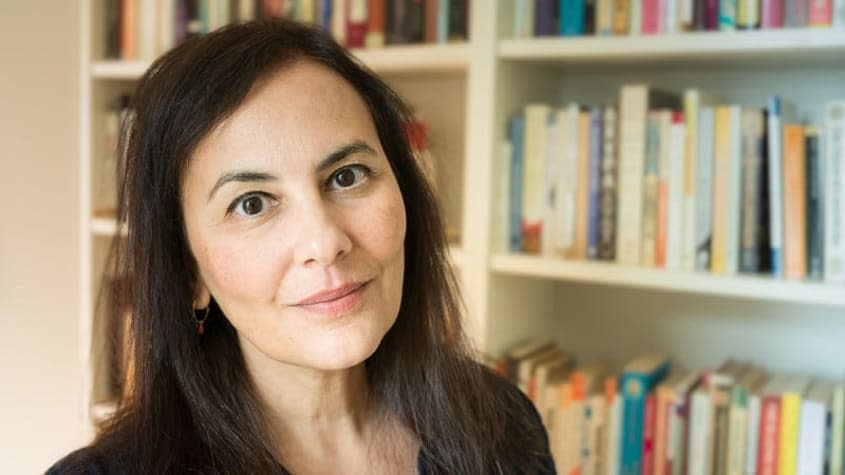Mai Al-Nakib recommends 6 books that play with memory and time

- Oops!Something went wrong.Please try again later.
- Oops!Something went wrong.Please try again later.
- Oops!Something went wrong.Please try again later.
Mai Al-Nakib is the author of the award-winning story collection The Hidden Light of Objects. In her debut novel, An Unlasting Home, a professor in Kuwait who is facing blasphemy charges revisits the globe-spanning lives of four women who raised her.
Swann's Way by Marcel Proust (1913)
Proust, the master architect of memory, is my touchstone. He loops together lived experience, recollection, and writing, as epitomized in the well-known scene with the tea and madeleine. He died at 51 but managed to preserve the specificity and beauty of his world forever. Buy it here.
To the Lighthouse by Virginia Woolf (1927)
This is a novel as much about novelistic form as it is about grief over lost parents and the brutal transition to the modern era. I have never read a more original depiction of the passage of time than in the short middle section, where the deaths are bracketed, even as the neglected family home and the objects left behind keep score. Buy it here.
Midnight's Children by Salman Rushdie (1981)
I have always believed in the extraordinary powers of literature, but never imagined what Rushdie made it do here. His exuberant explosion of language, narrative, and history cracked open English literature like never before. I will be eternally grateful that this book exists in the world. Buy it here.
The Trial by Franz Kafka (1925)
When I first read Kafka's novel about Josef K., caught in an absurd and terrifying net of bureaucratic indifference, I thought he could have been writing about the Middle East. The Trial remains as terrifying as ever, and K.'s final words — "Like a dog!" — still burn. Buy it here.
Fantasia: An Algerian Cavalcade by Assia Djebar (1985)
In this novel about an Algerian girl growing up during the French occupation, Djebar creates a lyrical contest between the written and oral, history and autobiography, occupation and liberation, self and nation, and — especially important to me — French and Arabic. A trailblazer, she pushed against the narrow expectation in the Middle East that Arab writers should write only in Arabic. Buy it here.
The Unbearable Lightness of Being by Milan Kundera (1984)
I read this novel when I was 14, and didn't get most of it, but intuited that something about it would draw me back. As the years pass, I return to Kundera's writing, especially this book, for its tragic gaiety in the face of a doomed world. Buy it here.
This article was first published in the latest issue of The Week magazine. If you want to read more like it, you can try six risk-free issues of the magazine here.
You may also like
Russia's sunken flagship Moskva is literally irreplaceable, its loss shrouded in questions

